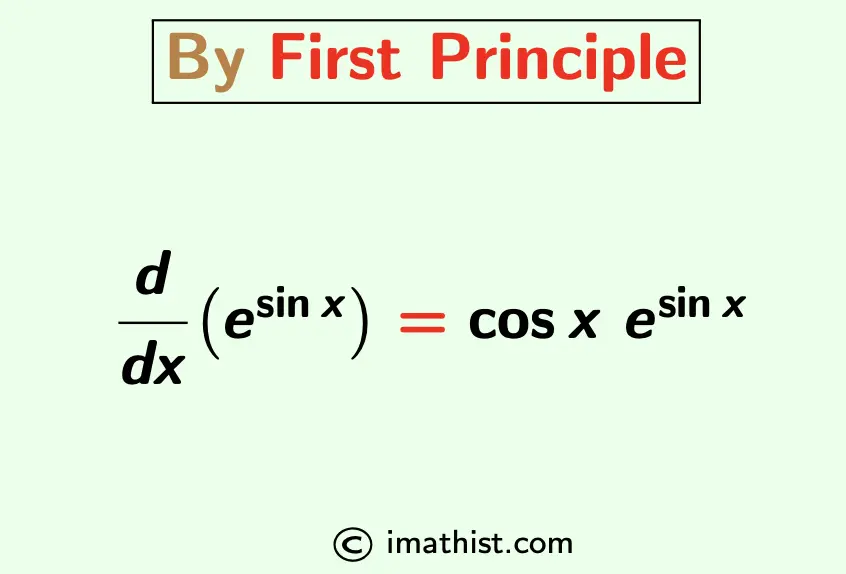The derivative of e^sinx is equal to cosx esinx. In this post, we will find the derivative of esinx by first principle.
The esinx derivative formula is given as follows:
$\dfrac{d}{dx}$(esinx) = cosx esinx.

Derivative of e^sinx Using First Principle
The derivative of f(x) using the first principle is given by the following limit formula:
$\dfrac{d}{dx}$ ( f(x) ) = limh→0 $\dfrac{f(x+h)-f(x)}{h}$.
Put f(x) = esinx.
So $\dfrac{d}{dx}$ ( esinx ) = limh→0 $\dfrac{e^{\sin(x+h)} – e^{\sin x}}{h}$
= limh→0 $\dfrac{e^{\sin x}(e^{\sin(x+h)-\sin x} -1)}{h}$
= esinx limh→0 $\dfrac{e^{\sin(x+h)-\sin x} -1}{h}$
= esinx limh→0 $\dfrac{e^{\sin(x+h)-\sin x} -1}{\sin(x+h)-\sin x}$ × limh→0 $\dfrac{\sin(x+h)-\sin x}{h}$
[Let z=sin(x+h)-sin x. Then z→0 as h→0]
= esinx limz→0 $\dfrac{e^z-1}{z}$ × limh→0 $\dfrac{2\cos(x+\frac{h}{2})\sin \frac{h}{2}}{h}$, using the formula sina – sinb = 2 cos(a+b)/2 sin(a-b)/2.
= esinx × 1 × limh→0 $\cos(x+\frac{h}{2})$ × limh→0 $\dfrac{\sin \frac{h}{2}}{\frac{h}{2}}$ as the limit limx→0(ex-1)/x =1.
= esinx cos(x+\frac{0}{2}) × limu→0 sinu/u where u=h/2.
= esinx cosx × 1
= cosx esinx.
So the derivative of e^sinx is equal to cosx esinx, and this is obtained by the first principle of derivatives.
More Derivatives:
FAQs
Q1: What is the derivative of e^sinx?
Answer: The derivative of e^sinx (e to the power sinx) is equal to cosx esinx.